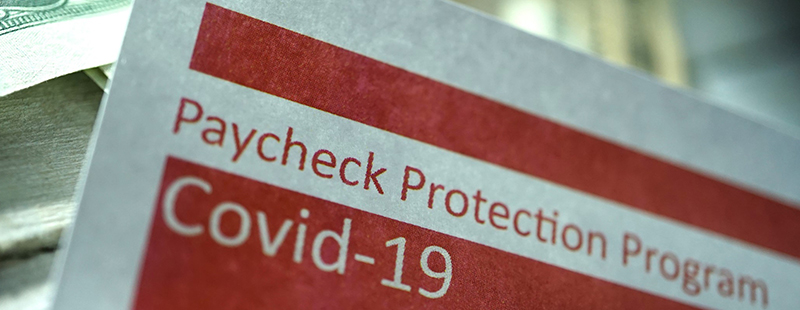The Biden Administration announced changes to the Paycheck Protection Program (PPP) to increase lending to smaller businesses and help ensure equitable distribution of loans to them. But qualified businesses may want to act fast because there is a two-week period when PPP loan applications will exclusively be accepted from businesses with fewer than 20 employees.
PPP Basics
In March of 2020, the CARES Act established the PPP, which permits the Small Business Administration (SBA) to provide loans to qualified businesses impacted by the COVID-19 pandemic. The 100% federally guaranteed loans must be used for payroll and certain non-payroll costs.
Part of the Consolidated Appropriations Act (CAA), which was enacted in December of 2020, authorizes $284 billion towards the PPP and extends it until March 31, 2021. The law also expanded access to “First Draw” PPP Loans to other entities, expanded additional eligible expenses, clarified terms, and authorized “Second Draw” PPP Loans for smaller borrowers.
The Program’s Current Status
In a Fact Sheet, the White House notes that compared with the prior round of the PPP, under the current round, loans have increased by nearly 60% to businesses with fewer than ten employees. The share of funding to rural small businesses is also up nearly 30%. In addition, the share of funding distributed through Community Development Financial Institutions and Minority Depository Institutions is up more than 40%.
PPP Changes
The Biden Administration announced several changes to ensure the smallest businesses receive much-needed relief:
1. Beginning February 24, 2021, only businesses with fewer than 20 employees may apply for PPP relief for a 14-day period.
2. The loan calculation formula will be revised to provide greater access to sole proprietors, independent contractors, and self-employed individuals. Further, $1 billion will be set aside for this category for those without employees located in low- and moderate-income areas.
3. Small business owners with prior non-fraud felony convictions won’t be restricted from receiving PPP relief consistent with the bipartisan bill, the PPP Second Chance Act.
4. An exclusionary restriction is eliminated that prevents small business owners who are delinquent on their federal student loans from obtaining relief through the PPP.
5. The SBA has been directed to issue guidance that clarifies that non-citizen small business owners, such as Green Card holders or visa holders, may use an Individual Taxpayer Identification Number (ITIN) to apply for relief.
The White House Fact Sheet notes that small businesses account for 44% of U.S. GDP, create two-thirds of net new jobs, and employ nearly half of America’s workers. Contact us if your business would like help applying for a PPP loan or you need assistance with any other aspect of the loan program.





